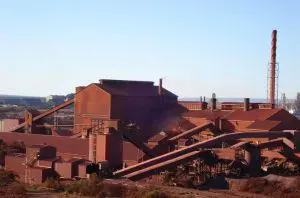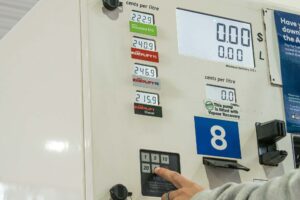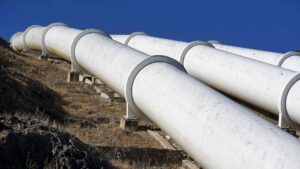French nuclear giant EDF Energy has been forced to shut down one quarter of its nuclear fleet in the UK, but the national grid operator says it is not an issue because there is plenty of back-up – from wind energy.
EDF Energy says it was forced to shut down four nuclear reactors – equivalent to one quarter of its total nuclear generating capacity – after discovering a fault in a boiler unit, the Financial Times reports.
The company said it had found a defect on a boiler spine at a reactor at its Heysham-1 plant in Lancashire, and took the “conservative decision” to halt the second reactor at Heysham-1 and two at its Hartlepool site in the northeast of England which are of a similar design.
The units are expected to remain closed for eight weeks.
 According to the FT, National Grid said the closures should not affect the UK’s energy supply. “Demand is low at this time of year, and a lot of wind power is being generated right now,” it said.
According to the FT, National Grid said the closures should not affect the UK’s energy supply. “Demand is low at this time of year, and a lot of wind power is being generated right now,” it said.
It’s an ironic turn of events, because the pro-nuclear and pro-coal lobbies constantly complain about wind and solar not being available when needed. But as these events underscore, big reactors and generators can suddenly go off-line – without warning – which is why there is some much redundancy built in to centralised grid operations.
South Australia, for instance, last month met nearly 50 per cent of its electricity demand over the month of July from wind energy and rooftop solar, yet it has not needed to add any additional “back-up” capacity. Indeed, it is using less gas-fired generation rather than more.
The FT noted that the UK’s fleet of nuclear plants has become increasingly prone to operational problems as the reactors, many of which were built in the 1980s, approach the end of their service life.
Heysham-1 and Hartlepool were both commissioned in 1983 and are due to come out of service in 2019.
The UK government has been pursuing plans for a new generation of nuclear plants, but no new reactors are expected to come on line until well into the next decade.
EDF Energy intends to build a £16bn power station at Hinkley Point C in Somerset, which will be Britain’s first new nuclear plant in a generation. But the project is on hold pending a decision by Brussels as to whether the investment contract agreed between EDF and the government constitutes illegal state aid.







